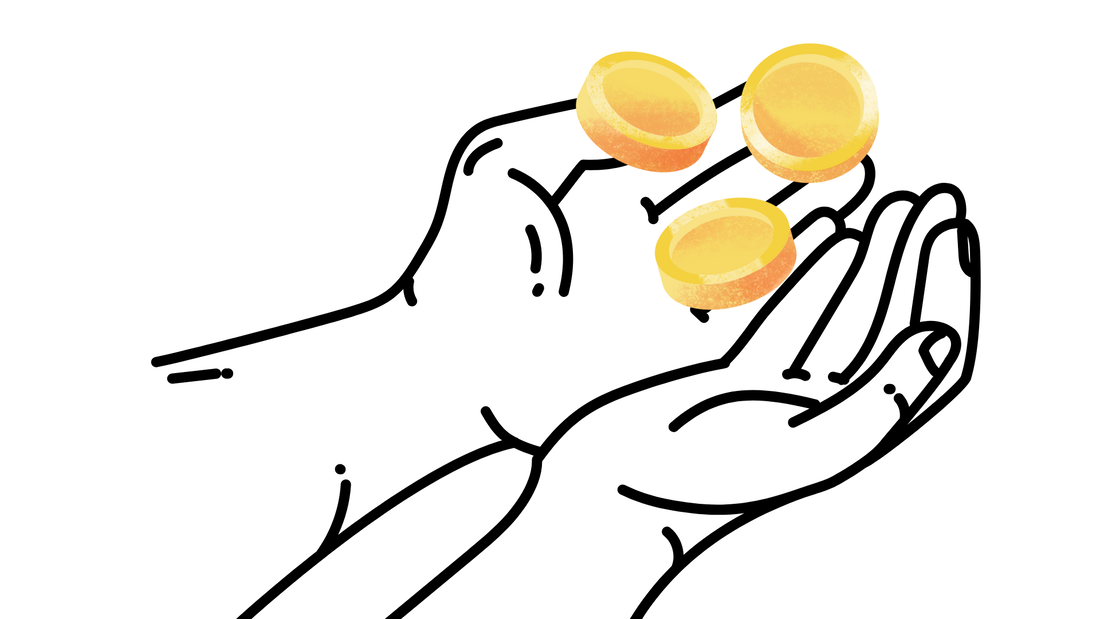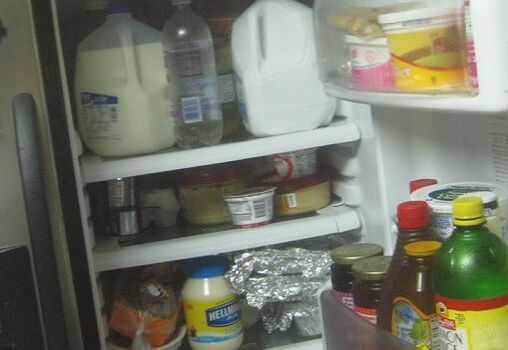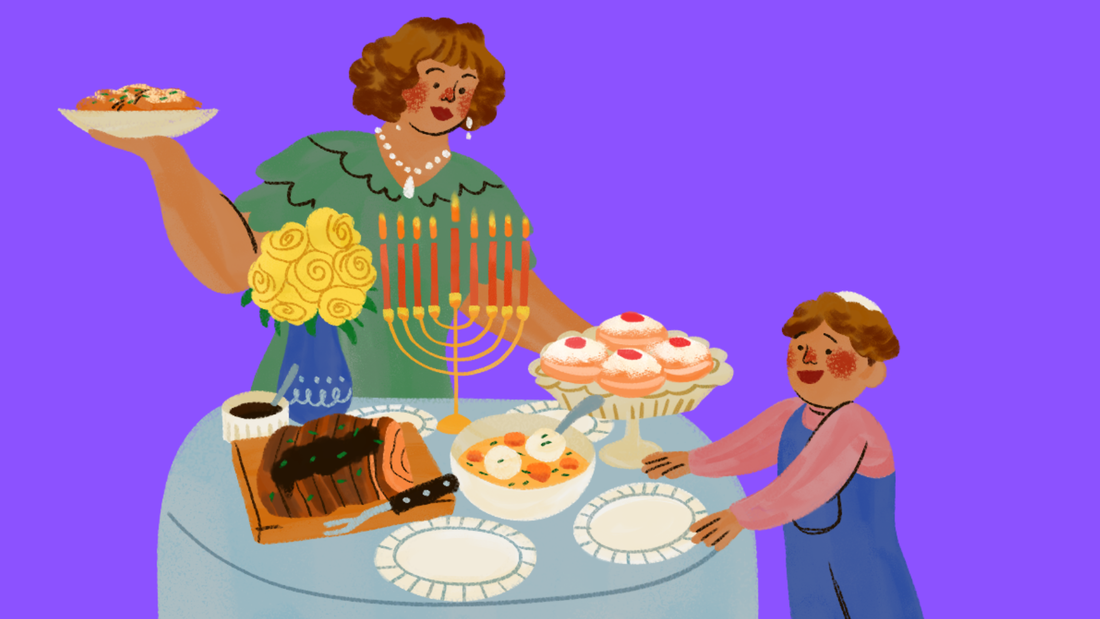|
The Breadcrumbs widget will appear here on the published site.
The Shnurer has a skill. A marketable skill to ask for money with no shame. Now, they're even hitting me up with credit card machines in the middle of the Amidah. In the middle of asking Gd for sustenance, this guy is taking my money. He times it perfectly. And he's hitting me up with a credit card machine. Middle of Davening, I'm bowing so I can reach my credit card and make a purchase.
Getting me to pull out my credit card to pay for nothing, Shnurers are the greatest of Jewish businessmen. Let's take a journey back a few hundred years to see how Rothschild couldn't compete with the business acumen of these beggars. Rothschild Doesn't Do Business Like a Shnurer It's not just anti-Semites. Jews also view Rothschilds as wealthy. The difference is that we know all Jews are not Rothschilds. Many of the wealthy Jews we know don't give Tzedakah. The Joke: Shnurer says, 'If I was Rothschild, I'd be richer than Rothschild.' His friend asks, 'How?' The Shnurer says, 'I'd beg on the side.' How all Shnurers have friends, I don't know. They're very popular. Maybe it's because they're outside interacting with people. It's not a bad life. If we're talking about Rothschild. That's how you lead into another joke. You say something like, 'if we're already talking about this...' And your friend is saying, 'I didn't say anything. You're the one talking. I'm trying to get out of here.' Next Joke: If we're talking about Rothschild. Rothschild shows up to an inn in Plitskov and asks for eggs. The innkeeper tells him, 'Two eggs is three hundred rubles.' Rothschild asks, 'Are eggs that rare here in Plitskov?' The innkeeper says, 'No. But Rothschilds are.' You see how I led into the followup joke with, 'If we're talking about Rothschild'? It's all about technique. Tells Rothschild to Open a Bank Shnurers are just good businessmen. You saw the brilliance in the Rothschild joke. If you're an entrepreneur your should be learning from Shnurers. The Joke: Shnurer giving advice to Rothschild, ‘You should open a bank here in Plitskov.’ Rothschild responds, ‘Why? But there is no money here in Plitskov.' The Shnurer tells him, 'Because there is no bank.' ChaCha. The ChaCha emphasizes the joke is finished. It was used quite well in Coming to America to exentuate the joke. You use an old town like Plitskov and it sounds good. Also note, 'says' is a very important word when telling any joke or story. As these are Jewish jokes, we're not employing 'they says' as much as an average ninety year old American would in relating a story. Your average American delivery should consist of twelve or so 'and they says.' Conclusion If he would've listened to these Shnurers, Rothschild would've been rich. Antisemitism stems from Jewish jokes. If we would've used other names, like the Shwartzberg family for these jokes, nonJews would know most Jews that go to shul don't pay their dues and are not liked by the Jewish community. The Blog Tags Widget will appear here on the published site.
Tags:
The Recommended Content Widget will appear here on the published site.
The Breadcrumbs widget will appear here on the published site.
The Shnurer is the bedrock of the Jewish community. The beggar who has a right to your money. The Shnurer is there to remind you that you must give Tzedakah.
Tzedakah means charity. You probably don't know that. The one Hebrew word you don't know. Yet, the Shnurer reminds you. At shul, at your office, at your home, they are there to remind you. They will find you. And they will find a way to get your money. In the middle of Davening, they will find a way to get your money. While you're deep in meditation, they will find a way. They will stand right there, shaking handful of change and a credit card machine. It may be offsetting to see these people begging, who definitely have more money than you. Yet, it is our obligation to give them money. It's their living. Enough about the Shnurer. Here are a couple of Shnurer jokes we stole, to talk more about the Shnurer. The Guys Working Together You put an American in the mix. Americans don't understand Chutzpah. You throw them into Israel or any society where people interact, and you have a joke. My father A"H used to tell this joke. He told it better than me. Maybe you can punctuate it better the punchline I can. The Joke: An American is walking in the Old City of Jerusalem and one guy asks him very nicely for some Tzedakah. He gives him a bit. As the American keeps walking, another guy starts to hound him for money. He starts yelling at him, 'You heretic. Walking in your new sneakers. Probably not willing to give any charity. You should be ashamed of yourself. Only giving pettiness... You call that, what you gave, Tzedakah. Shame on you!!!' The American gives the guy a shekel and goes back to the first guy and gives him a twenty dollar bill. The American goes back to the guy who was yelling at him and says, 'You should be more like that guy. That's how you get Tzedakah.' The yelling Shnurer turns to the first Shnurer, 'Shloimy. Look who's telling us how to run our business.' So many Shnurers. They all have the same name. Always called Shnurer. Except Shloimy. The Shnurer in America I heard this one in shul. Anything told to you that disrupts the cantor's repetition of the Amidah is good. At least you're not paying attention to the prayer, and you're disturbing services. It makes a Jewish joke more enjoyable. The Joke: A Shnurer visiting America is knocking on doors, going to shuls, showing up by people's hospital beds. He's doing anything to get money. He sees this man, Schwartz, and gives him the whole shpiel: 'I'm raising money for my family. A single dad of fifteen kids. How poor we are. We're trying to make it in Israel. My wife died. It is just me, raising eight children. We have nothing. We Live in rubble. My child is missing a leg. Oh Jerusalem. How I mourn my poverty.' Feeling bad, Schwartz gives the Shnurer two thousand dollars. A few months later, Schwartz is in Jerusalem. Walking around the Old City he sees the Shnurer. He follows him to his house. He looks through the window and sees children running around in a beautiful home, laughing. A huge Shabbat table with guests. A chandelier fit for a Jew in Boro Park. A view of the Kotel. The wealth is abundant. He knocks on the door and the Shnurer invites Schwartz in. In a state of shock Schwartz asks the Shnurer, 'What is all of this about?! You have so much Bracha. You lied to me.' The Shnurer turns to him, 'What? It should bother you my wife is alive.' Jerusalem really adds a sense of holiness to a Jewish joke. Also, add in a Yiddish word like 'shpiel' and it's a more Jewish joke. Why the Shnurer answered the door, that part makes no sense. Any Shnurer should know you don't answer the door, or somebody will ask for something. Alternative Ending: Shnurer asks Schwartz if he needs any money. Conclusion We need the Shnurers. Otherwise, you would give money without feeling guilty. And you would only give to poor people. Without the Shnurer, you would be able to go to shul and focus on prayers. Or jokes. Always tell jokes in the middle of Davening. It's funnier when it disturbs people's Kavanah. It's always good to add Schwartz as a name in a Jewish joke. It sounds more antisemitic that way. The Blog Tags Widget will appear here on the published site.
Tags:
The Recommended Content Widget will appear here on the published site.
The Breadcrumbs widget will appear here on the published site.
The Kibbitzer Photo Album XXI4/23/2023
Let's take a stroll down memory lane to Pesach and how David went broke on mayonnaise, and how to save money on a car by using the shopping cart to bring the groceries home, with the Kibbitzer's pictures of laughter from last month. We want to thank David Kilimnick for sharing the fact that he stole shopping carts in Israel.
The Blog Tags Widget will appear here on the published site.
Tags:
The Recommended Content Widget will appear here on the published site.
The Breadcrumbs widget will appear here on the published site.
Growing up in a Jewish community, and now being the rabbi of a community, I have studied the art of how the Jewish joke is told, while being forced to listen to them. And we all know, it's about the delivery. So, here is how you deliver a Jewish joke with style.
Must Have a European Accent That means talking like a New Yorker. To deliver a Jewish joke correctly, talk like somebody who immigrated from Europe a hundred years ago, or a New Yorker. It's all the same. They both sound foreign to anybody in the Midwest. When delivering as a New Yorker always pronounce an 'a' when pronouncing an 'r'. The caveat, that is unless the 'r' is in the beginning of a word. And anytime you have an 'i', stress the letter and add an 'u' to it. Also add 'oy' to words with a 'y', so that you can complain more while talking. And then add vowels wherever possible. Any joke delivered in this way is now Jewish. 'Whoy did the chicken crawss the road? To get to the otha suiide.' Now, it's a Jewish joke. Start Each Joke With 'You Know the One About...' This lets them know that you're not talking about yourself, and you're not the one who moved to the Lower East Side in the 1930s to see Ms. Nafkowitz. You can also use, 'Have you heard the one about...' 'About' must be in there. The 'I saw' or 'This guy I know' joke methods are not Jewish. 'About' must be there. The 'you know the one about' method also give the other person the chance to say, 'I know that joke,' so that you can continue to tell the joke yourself. Grab the Person Make sure to grab your friend's arm. You start with a touch and then you grab. If you don't grab their arm, they may not stay for the whole joke. I learned this method by watching Mervin at Kiddish. He was the only one who could get people to hear him finish his jokes. Other people who did not use the grabbing technique lost their subjects mid-joke. You want to cup their elbow. You don't want them to be able to escape. Pull them into you if possible. Squeezing tight helps if there is a long setup. The tighter you squeeze, the easier it is to hold their attention. Literally. You want to think of the arm touch and grab as holding their attention till you get to the punchline. Now people stay away from Mervin, in fear that they will suffer physical harm from his humor. Nonetheless, violence can help with delivery. Laugh at The Joke Yourself You can't depend on anybody else to laugh at your joke. All joke delivery should end with you laughing. This way people can see you enjoying it. Somebody should enjoy your jokes about mother-in-laws. Note: Mother-in-law jokes should not be told in front of mother-in-laws. That can make for an awkward conversation at Kiddish. Stare at the Person Until They Laugh After the joke stare. Fix your eyes on them. It will trigger a response. Hopefully they realize you just told them a joke and are expecting a laugh. Every Statement Should Be in Question Form Your joke should start with a question and end with a question. This way, the listener will not know if you're done. 'Why do Jews answer questions with questions?' 'Why shouldn't we?' That tone of 'why shouldn't we?' is how you must end every joke. Every punchline should sound like that, with a New York accent. Hence, making it a Jewish joke. Shrug your shoulders while supinating your hands for correct delivery posture. A bit of a forward head tilt, with widened eyes and closed lips, helps with the question form pose. While supinating your hand, do not loosen your grip on their elbow. Even if it hurts the delivery, you don't want to take a chance with them walking towards a conversation they want to have. To help the audience, add a 'nu' at the end of the joke. That works like a George Burns cigar, ending the joke for them. Allowing them to know they're supposed to laugh. If you don't add a 'nu' they won't know to laugh. Never depend on the material or your stare. You must have a 'nu' or squeeze their arm tighter. That's how a Jew tells a joke. That's tradition. And if you can, corner the subject, so they can't slip out of the joke hold and get away in the middle of the joke. The Blog Tags Widget will appear here on the published site.
Tags:
The Recommended Content Widget will appear here on the published site.
The Breadcrumbs widget will appear here on the published site.
'My son, the doctor.' The most quoted saying of any proud Jewish mother with Nachis. Let's do a few of those jokes.
Before we get going, I want to praise the medical field. Doctors are amazing. Some of them can even add ten years to your life, just waiting in the reception room. We stole that one from other people who stole that joke too. To note: Nachis means your son is a doctor. The One About President Every joke is about something. That's how you reference jokes. You say, 'The one about.' If you somebody ever asks you, 'Did you hear the one about?' Run. Get out of there as quick as possible. They're about to tell you a joke, and they will probably grab your arm to make sure you listen to them tell you the whole thing. Even if you heard it before. So, this is the one about the president. The Joke: About to be honored in the inaugural ball he calls his mom. 'Mom. I want you to come.' His mother is trying to get out of it, asking 'why, what's the big deal about this president thing. I don't know know from such...' He tells her, 'I just became president of the USA. I am the leader of the free people. I want you to be at the dinner. And make sure you look good.' Finally, after his mom argues with him about what a free people is, she agrees. The next day, she's at the beauty salon. She shows up all decked out in an evening gown. The stylist notes how beautiful she looks and that she hasn't been there for years. He then asks, 'Why are you here?' The mother answers, 'You know my son the doctor?!His brother is getting honored.' Three Women Praising Their Children Jewish mothers praise their children. If your friend's child sounds better than yours, you've failed as a Jewish parent. It has nothing to do with what your child has done. We know they're a failure. At home, they've failed you. You would never trust your child to put together a bookcase. You're a Jewish mother. However, when it comes to your friends, your child is the best builder around. At home, you yell at him that he should call somebody to step on the ladder. With your friends, 'He's the best ladder stepper. He was also the greatest at on the balance beam as a third grader.' Years have been spent at Kiddishes with Jewish mothers letting their friends know how great their children are. I have even heard mothers praise their Jewish children as the best athletes. Athletes that will one day choose medical school over the NBA. Why? It's better money. The Joke: These women are sitting at the pool in Florida and talking of their children. 'My son. You know what he does for his motha? He flies me in to see him every year for my birthday. What a boy.' The next one says. 'My son is even better. For my birthday, he comes down to Florida. He flies in all of my friends. He puts together a party. You wouldn't know of such things.' The other friend joins in, 'My son is the best. Better than them all. He goes to a psychiatrist three times a week. Each time he spends five hundred dollars. And you know what he talks about? Me.' Appendix to joke: She then goes on to add, Schepping Nachis, 'His mother. He talks about his mother the whole time.' The Daughter Who Got Divorced Three women are talking. It's the same three. That's what they they do. They sit by the condo pool and talk. It's the same three Jewish women in every joke. They start asking their friend Fran about her daughter. The Joke: Talking of Fran's daughter, Ethel asks, 'You mean the one who married the docta?' Ethel is from New York and doesn't know that doctor ends with an 'r'. Fran breaks it to them, 'They broke off that wedding.' The next friend adds, 'You mean, the one who's with the lawyer.' Fran notes, 'That also didn't work out.' Another one of the friends sitting on the side hears the conversation and joins in, 'Isn't that the girl that was with the real estate develapa?' She was also from New York. Fran looks at her and says, 'Ahh. That didn't work out either.' Ethel is amazed, 'Wow. From one daughter, so much Nachis?!' Conclusion If you're not a doctor, your parents don't love you. Nowadays, a good Jewish mother wants her kid to work in computers. 'My son! The computer technician!' It doesn't have the same ring as 'my son the doctor.' It's hard to fully garner the same Nachis from the computer guy. 'My son. The computer guy. What a boy. He saves hard drives.' The 'my son the computer engineer' genre of jokes has not made its way into the Jewish joke lexicon. The Blog Tags Widget will appear here on the published site.
Tags:
The Recommended Content Widget will appear here on the published site.
|
A well put together cover page for a Jewish newspaper. I knew I was reading a Frum Jewish newspaper, as they found a way to fit 28 ads on the cover page. And the feature article is an ad for Amor jewelry... A properly written Jewish magazine should be advertisements. I once read a non-religious magazine, and I felt like a sinner when I read an article to only find there was no phone number at the end of it. I felt defiled… It’s a shame the Amor ad is so big. They could’ve got another 20 ads in.
(Shulchan Aurch 568:1) One who eats by accident on a fast must continue fasting. Making for a three hour fast to fully mourn the Churban of the Temples. I believe that break between meals fully calls to heart the true yearning of my soul over the loss of the Batei Mikdash... You can't eat once you remember you sinned, as one who committed a sin can't commit a second by snacking once they're already full.
Categories
All
Archives
July 2024
|
© 2021 Kibbitzer Magazine and JHF. All rights reserved.
The Kibbitzer, where we take Jewish comedy seriously!!! If you are offended, it's satire.
A friend of the Off The Wall Comedy Theater, JHF and The Kibbitzer are here to bring unity and Jewish connection for you, in honor of Rabbi Kilimnick ZT"L.
The Kibbitzer is Funded by the JHF (The Jewish Humor Foundation) and you.
Contact us to make a donation and to sponsor Harbatzas Tzchok, the spreading of tradition through laughter, with articles or series in honor and memory of your loved ones.
The Kibbitzer, where we take Jewish comedy seriously!!! If you are offended, it's satire.
A friend of the Off The Wall Comedy Theater, JHF and The Kibbitzer are here to bring unity and Jewish connection for you, in honor of Rabbi Kilimnick ZT"L.
The Kibbitzer is Funded by the JHF (The Jewish Humor Foundation) and you.
Contact us to make a donation and to sponsor Harbatzas Tzchok, the spreading of tradition through laughter, with articles or series in honor and memory of your loved ones.












 RSS Feed
RSS Feed

6/19/2024
0 Comments